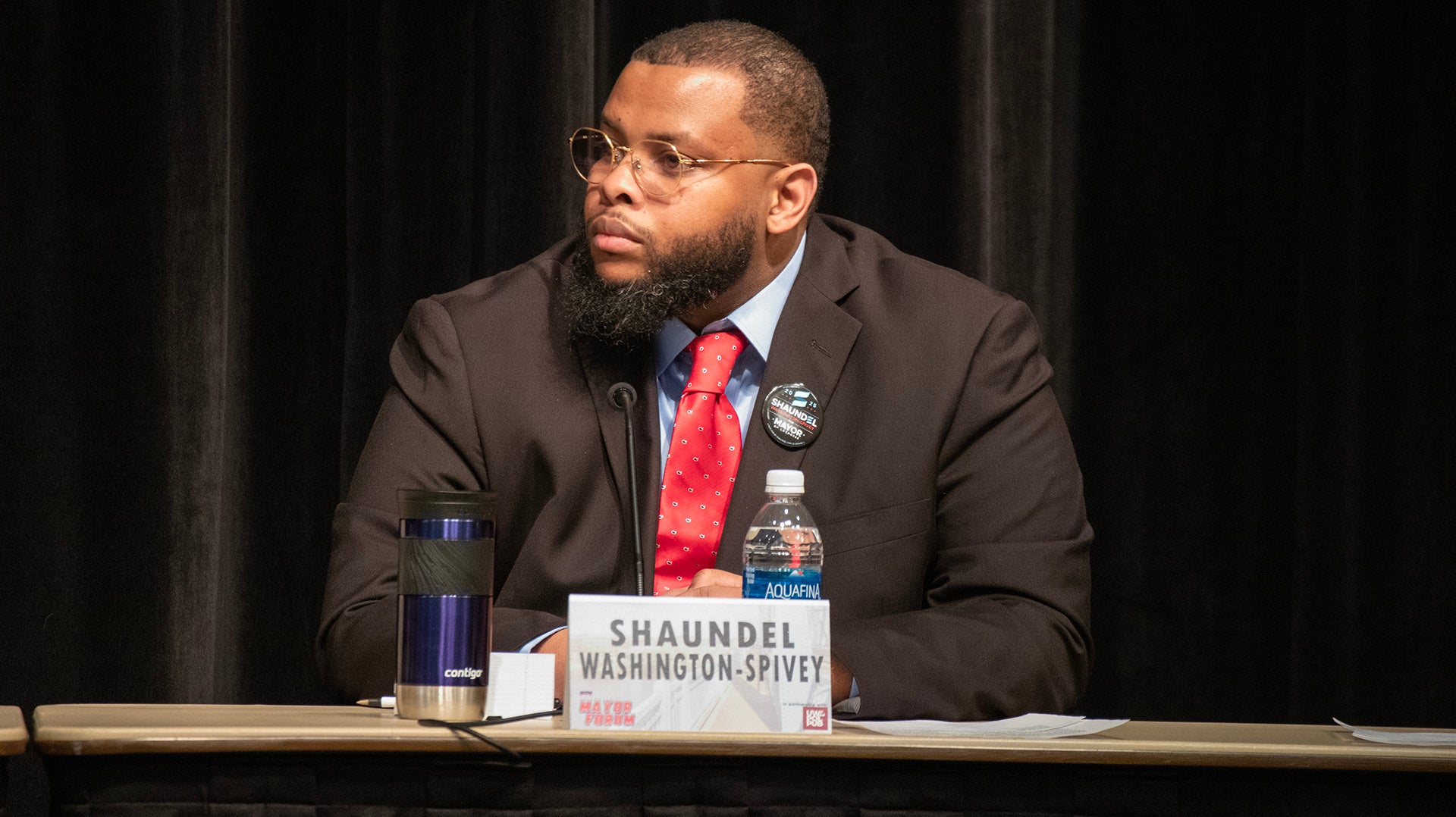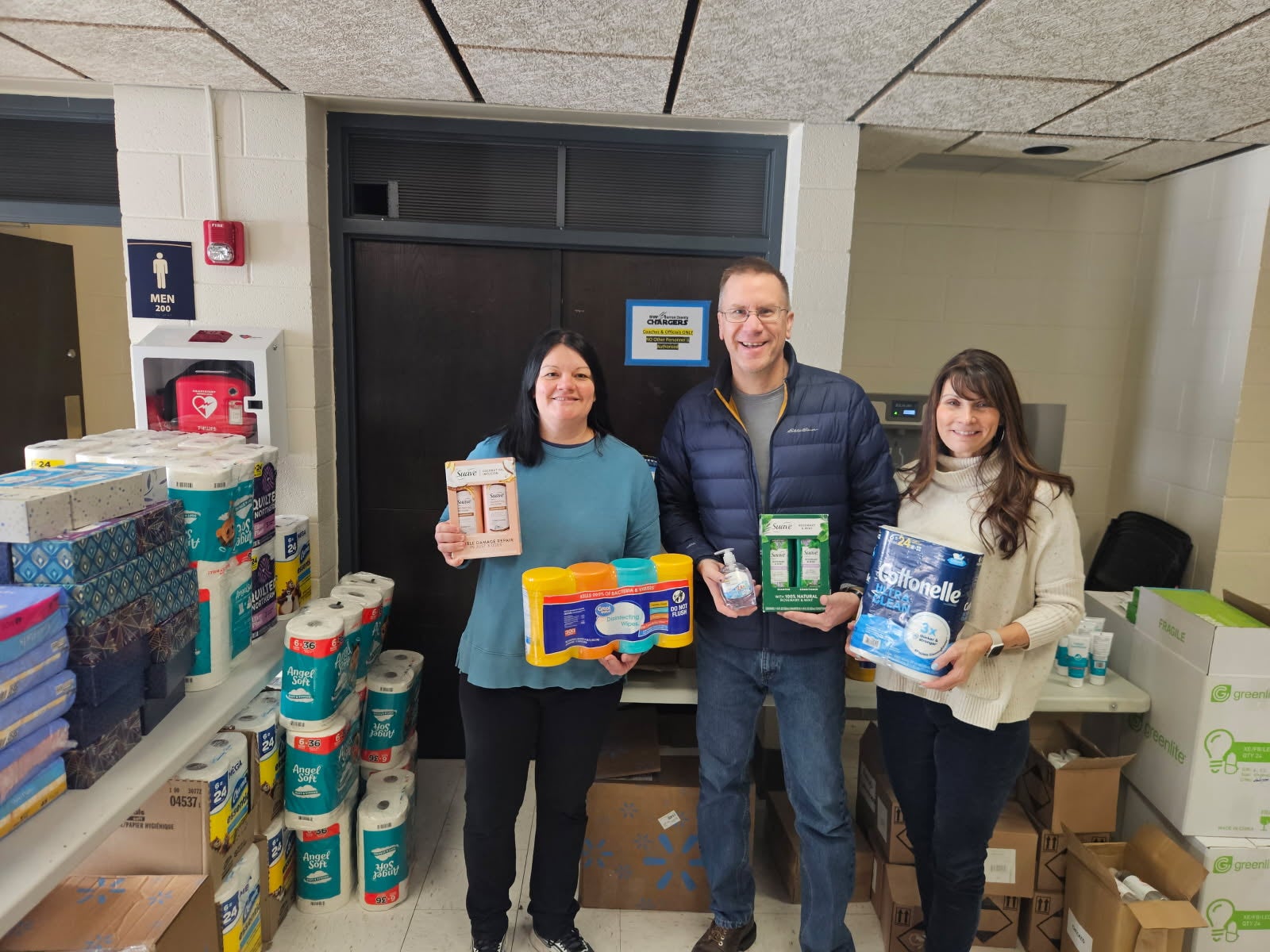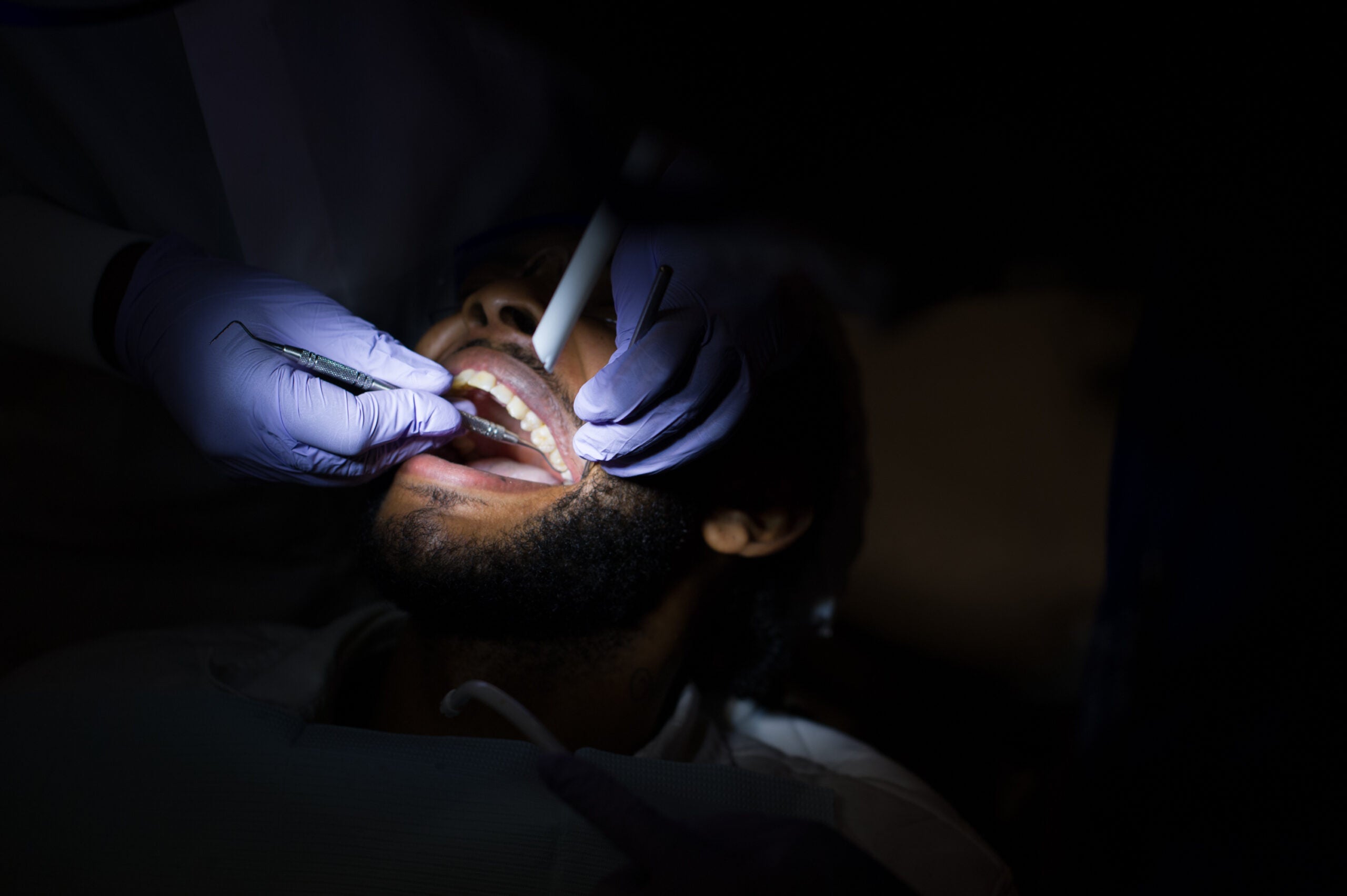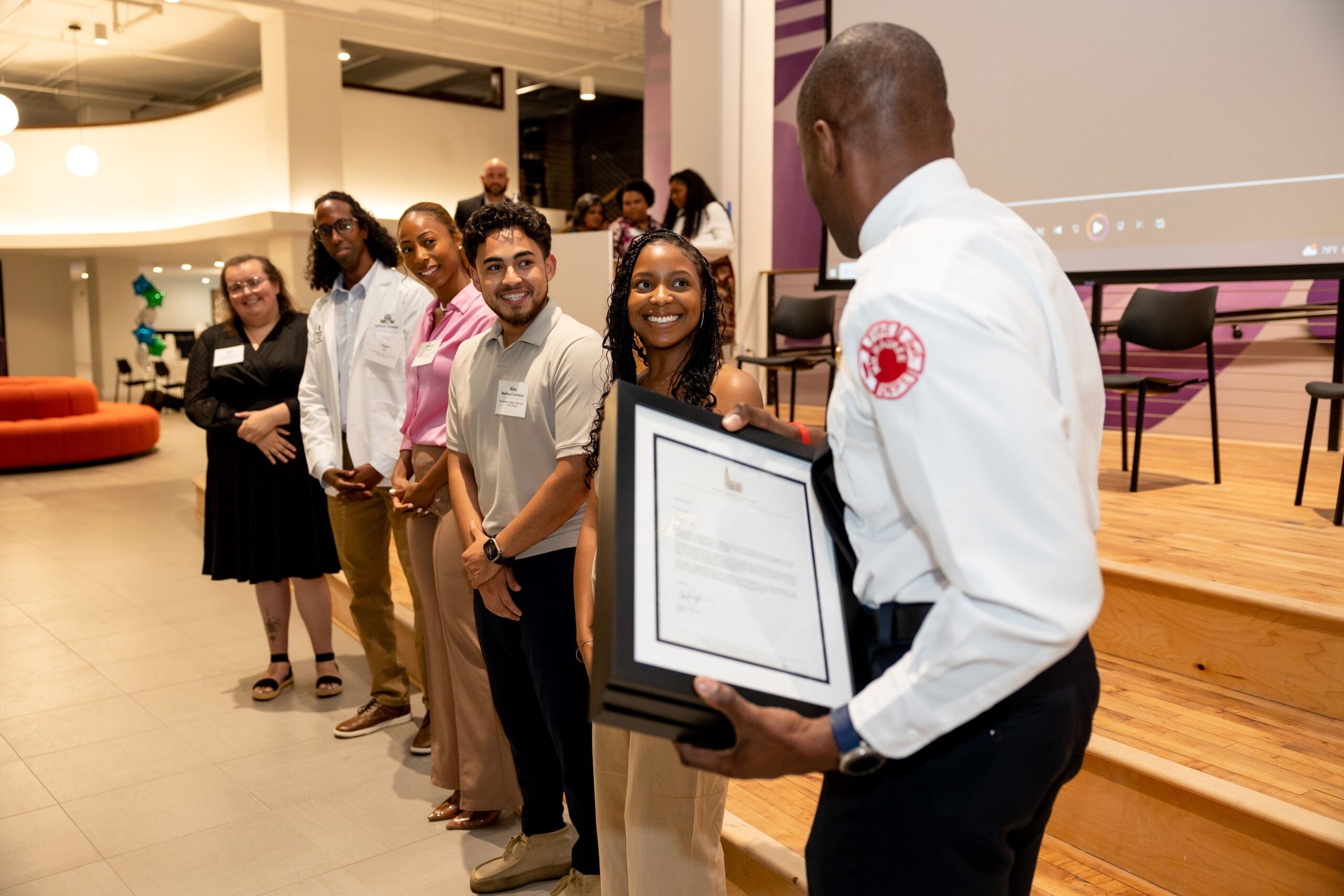The Healing House in Madison is the first medical recuperative shelter for families experiencing homelessness in Wisconsin, Angelica Euseary reports for the Cap Times.
The program was one of six across the country awarded with a two-year grant from the CDC Foundation and National Institute for Medical Respite Care. The Healing House is designed to integrate behavioral health services and medical care to those experiencing homelessness.
In 2012, the nonprofit JustDane (formerly known as Madison-area Urban Ministry) got involved with Occupy Madison and connected with people experiencing homelessness in the area.
Stay informed on the latest news
Sign up for WPR’s email newsletter.
“We met with housing providers, police, advocates and people who were experiencing homelessness,” said Linda Ketcham, JustDane executive director. “There were a lot of needs that were (unfilled) in our homeless services system. Among them was the need for medical recuperative shelter.”
The Healing House is coordinated by Terri Johnson and is located near Camp Randall stadium at 303 Lathrop St. in Madison. The house includes bedrooms, a TV room, office, kitchen, dining space, bathrooms and a common area. With the new funding, the program plans to invest in new medical supplies and hire a peer support specialist as well as nursing staff.
“These people are homeless,” said Chris Maloney, who’s volunteered at the Healing House for two years. “Whether they’re on the street or in some type of facility, it doesn’t make any difference. They’re hurting. How nice it would be for them to have a home-cooked meal when they get out of (the) hospital, after they have a baby or while their children are sick.”
Wisconsin DHS: COVID-19 Weekly Recap
The seven-day average for new COVID-19 cases in Wisconsin is 1,755 as of Friday. The Wisconsin Department of Health Services has confirmed 13,027 total deaths from the disease.
Just over 61 percent of Wisconsinites are fully vaccinated — 83 percent of people age 65 and older, 59 percent of children age 12 to 17 and 25 percent of children 5 to 11 years old. As of Friday, 35 percent have received a booster shot.
No fees for state parks this weekend
The first weekend of June is the Department of Natural Resource’s Free Fun Weekend, in which all admission fees, trail passes and fishing licenses to Wisconsin state parks are waived.
National Trails Day is also this Saturday.
Anytime outside of Free Fun Weekend, you need a vehicle admission sticker to get into most state parks, which costs $28 per year or $8 per day for most.

Summer program offers free meals to children across the state
School districts across the state are once again participating in the Summer Food Service Program, which provides nutritious meals to children throughout the summer.
Meals can be picked up at schools and organizations within your community. For example: the School District of Beloit will have meals available at district schools and the YMCA; and the School District of Janesville will have meals available at district schools and the Boys and Girls Club.
This map, updated weekly, can help you find a location near you.
You can also find a location by:
- Calling 211
- Texting “food” to 304-304
Children 18 years old and under are eligible for the program. As are certain individuals older than 18 years old who are enrolled in public or private school programs
The Summer Food Service Program is funded by the U.S. Department of Agriculture and administered by the Wisconsin Department of Public Instruction.
1.3M Wisconsin households lack broadband internet service
Approximately 650,000 people lack access to high-speed internet at home — enough to stream a video or take an online class, the Milwaukee Journal Sentinel reports. Moreover, state officials say, another 650,000 people can’t afford the service that’s available to them.
The Wisconsin Public Service Commission gathered its own data through crowdsourcing and other means after a Federal Communications Commission mapping system underestimated coverage gaps across the nation.
With more accurate and detailed data on where broadband is lacking — and who is lacking it — state officials say the problem will be easier to solve
PSC Chairwoman Rebecca Cameron Valcq likened it to throwing darts in a dimly lit tavern. “It’s a heck of a lot easier for me to hit the bull’s-eye if you turn the lights on,” she told the Journal Sentinel.
New Milwaukee-area brewery to honor brewing history
A new brewery, Torzala Brewing Co., is opening in Bay View with a plan to focus on “traditional beers” in alignment with Milwaukee’s brewing history.
The Milwaukee Journal Sentinel profiled the brewery’s owners, Jeff Torzala and his wife, Tricia, about how this new endeavor fulfills a long-held dream.
“I’ve been chasing this dream for probably 20-plus years,” he told the newspaper.
The brewery’s opening was something of an odyssey for Torzala as a personal passion became a professional pursuit. He was a home brewer for years and soon began to take classes with the intention of laying the foundations for a business.
The brewery will produce pale ales, pilsners, stouts, lagers, porters and a Munich-style helles. Initially, it will feature five beers on tap, according to the newspaper.
Evers announces $22M for to emergency response initiatives
Gov. Tony Evers announced on Tuesday an additional $22 million investment in two statewide emergency response projects. The funding will go toward fire station construction and expansion, emergency medical services and emergency medical response program support and expansion projects and a permanent drive-through COVID-19 immunization and testing site.
“We have been working hard to invest in projects that will help build stronger, healthier communities across our state,” Evers said in a press release. “By preparing for whatever comes next, we’re not only strengthening pandemic response in our communities, but building the future we want for our families, our communities, and our state.”
Newly announced grant recipients include the City of Altoona, Town of Beloit, City of De Pere, Laona Rescue Unit, City of Oconto Falls, City of Peshtigo, City of Waupun and Westby First Responders.
Hot air balloon crashes into train, 3 injured
Three people are recovering from severe injuries after their hot air balloon crashed into a train in Burlington.
The Milwaukee Journal Sentinel reported Thursday that police said the crash happened around 8:15 p.m. Wednesday when the balloon crashed into a northbound Canadian National train.
It’s unclear what caused the collision but witnesses said the balloon was in distress before the crash. One witness said the balloon bounced off a building and the train hit it.
Two of the balloon’s three occupants were flown to Froedtert Hospital. The third person was taken to Froedtert by ambulance.
In wake of Uvalde shooting, experts still recommend against phones for children
The debate over whether children should have phones in school to use in emergencies has resurfaced after 21 people were gunned down in a Uvalde, Texas elementary school shooting, but experts are still recommending against it.
According to an article in The Washington Post, 43 percent of kids ages 8 to 12 have their own smartphone, and it’s the families — not the children — who want them to have access to those phones.
But some experts believe that giving children phones won’t necessarily make them safer.
Ken Trump, president of National School Safety and Security Services — a firm that helps prepare educators for dangerous situations — said being quiet is one of the most important things to do in active shooter situations, and phones can be noisy.
“The general rule is, when you’re in a lockdown, educators and safety officials don’t want kids on the phones because you want their full 100 percent attention on the teacher or other educators,” he said.
Moreover, students might be inclined to post on social media about an ongoing shooting and could either give away their location or invite unwanted attention from other potential shooters.
Jean Twenge, a psychologist who studies children and technology said guardians need to have conversations with their phone-equipped children about media literacy, bullying and how to use phones during school shootings including turning the phone off.
“Phones are not going to stop school shootings. Gun control might,” Twenge said.
Editor’s note: The Associated Press contributed to this report.
Wisconsin Public Radio, © Copyright 2025, Board of Regents of the University of Wisconsin System and Wisconsin Educational Communications Board.





